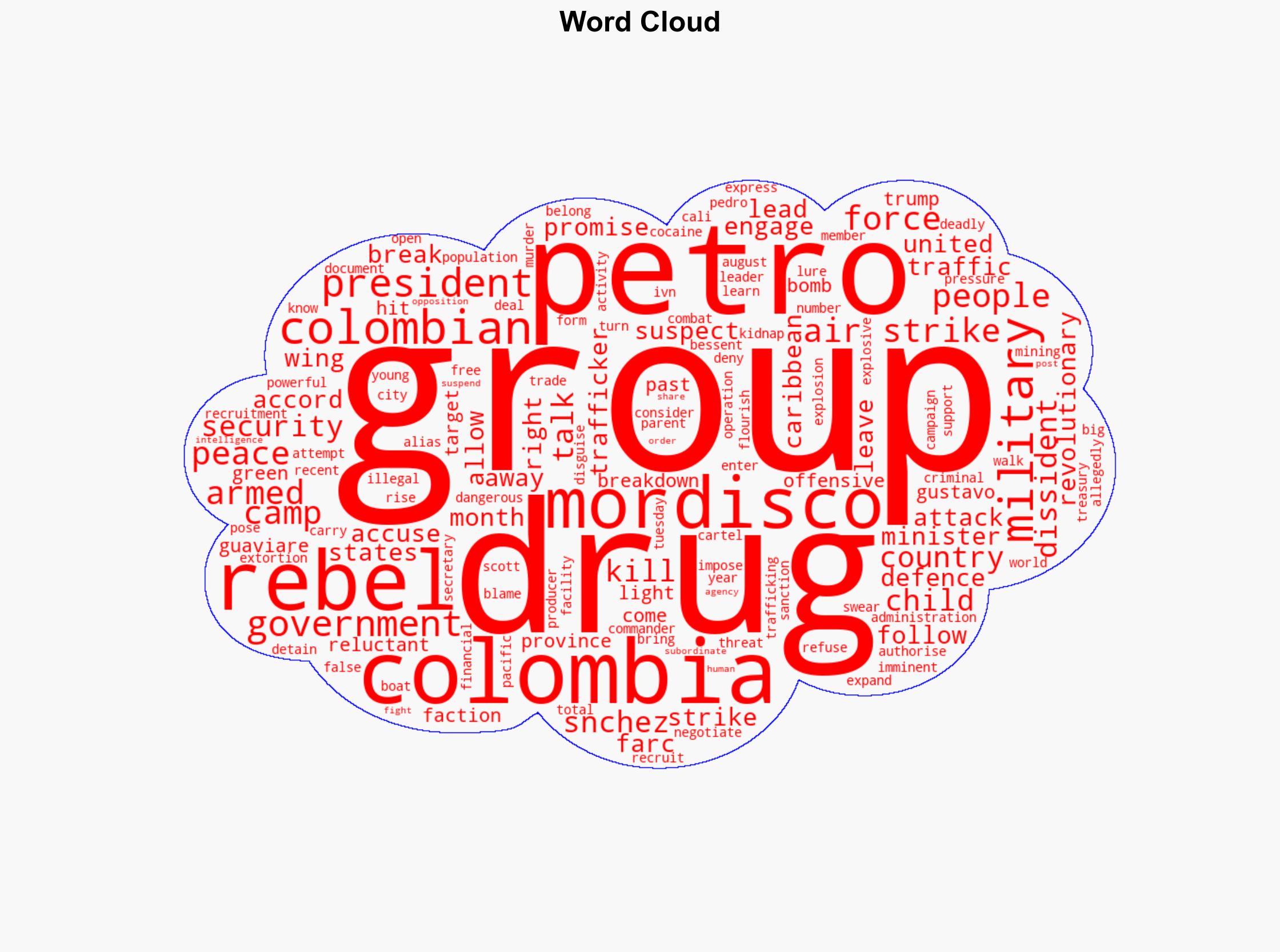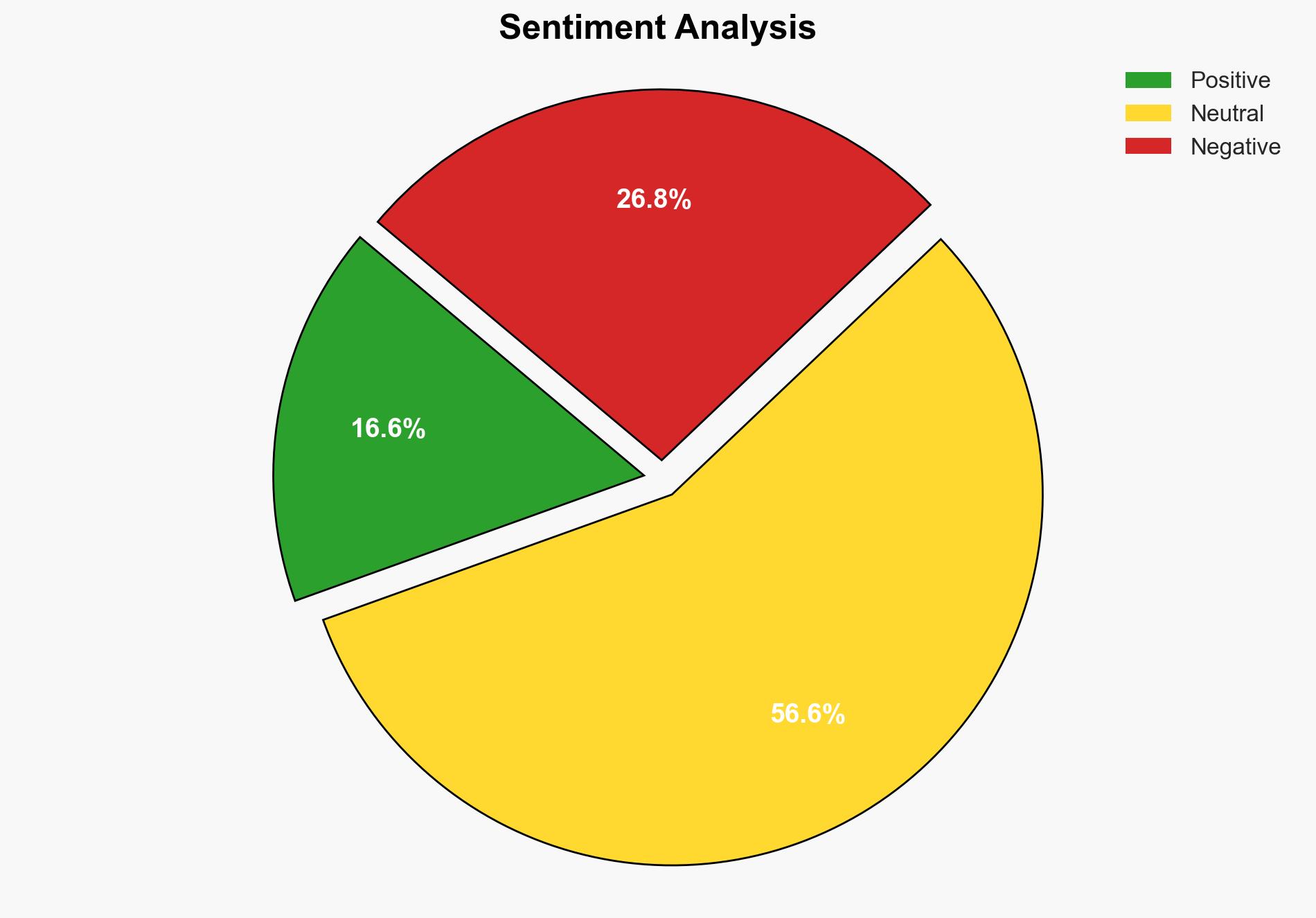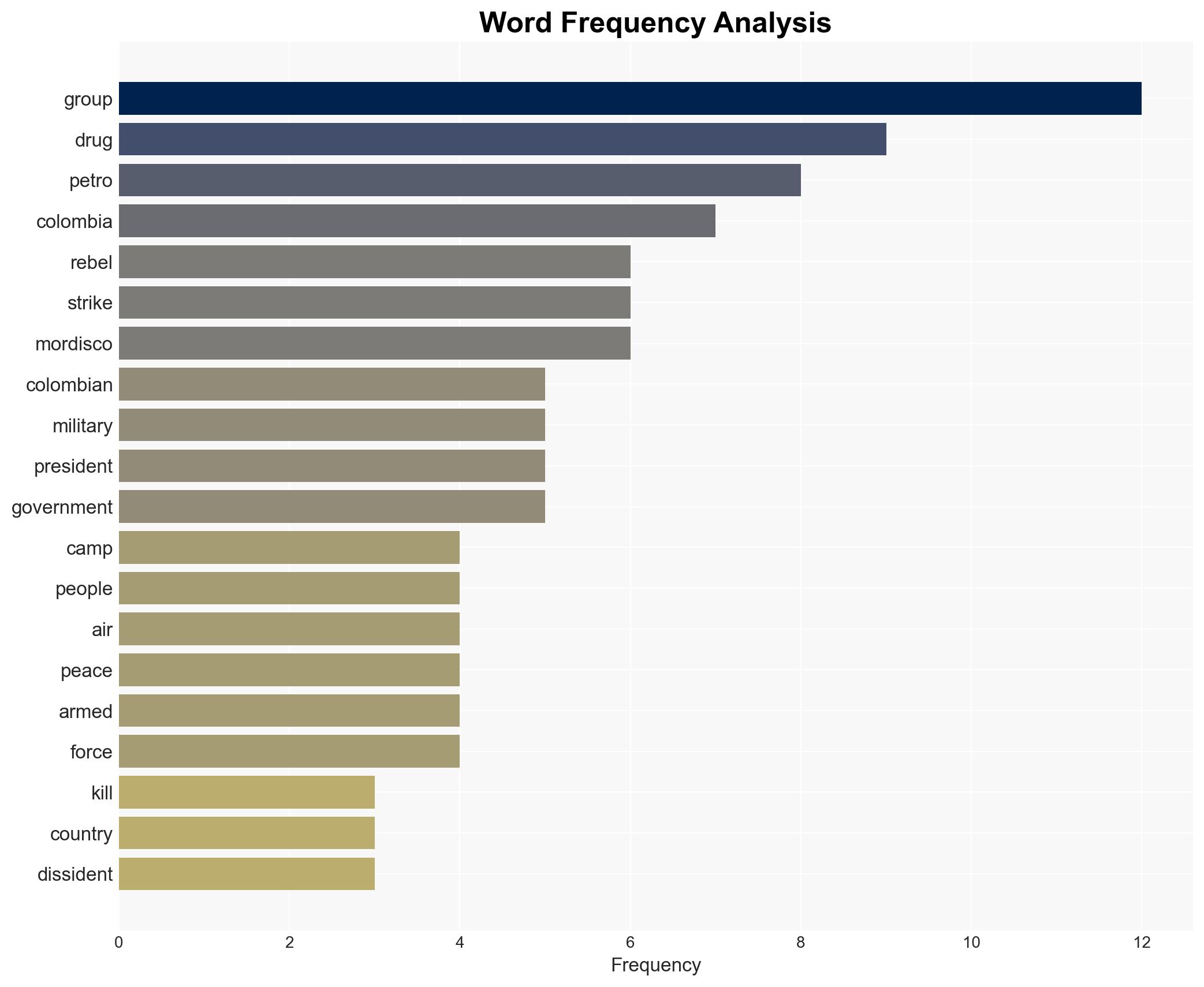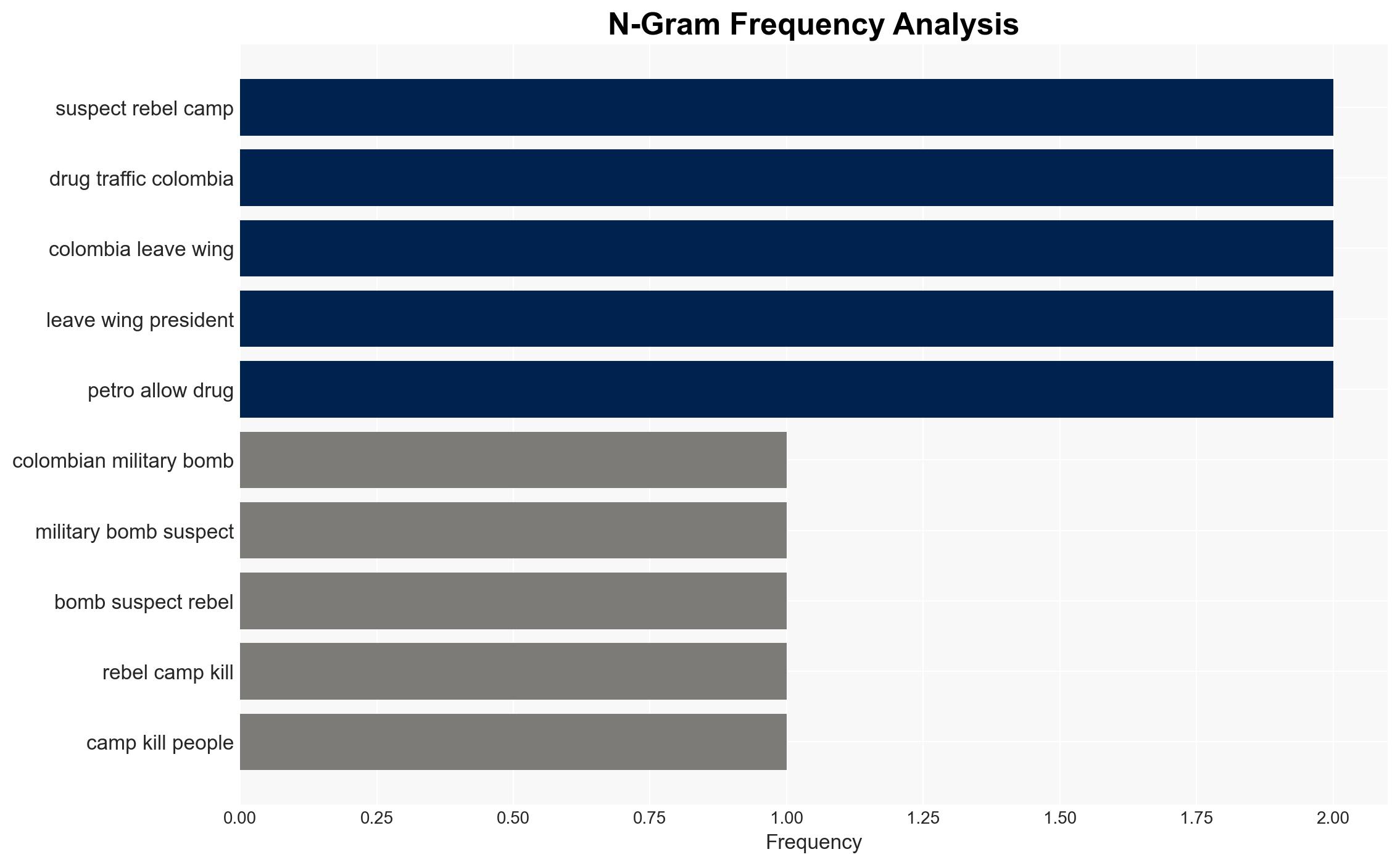Colombian military bombs suspected rebel camp killing 19 – BBC News
Published on: 2025-11-12
AI-powered OSINT brief from verified open sources. Automated NLP signal extraction with human verification. See our Methodology and Why WorldWideWatchers.
Intelligence Report: Colombian military bombs suspected rebel camp killing 19 – BBC News
1. BLUF (Bottom Line Up Front)
The Colombian military’s airstrike on a suspected rebel camp, resulting in 19 fatalities, reflects a significant escalation in the government’s approach to handling dissident factions of the FARC. The most supported hypothesis is that this action was a strategic move by President Gustavo Petro to demonstrate a hard stance against drug trafficking and dissident groups, potentially under U.S. pressure. Confidence Level: Moderate. Recommended actions include enhancing intelligence sharing with allies and increasing diplomatic engagement to address underlying issues.
2. Competing Hypotheses
Hypothesis 1: The airstrike was a calculated measure by President Petro to assert control over dissident factions and curb drug trafficking activities, possibly influenced by U.S. pressure.
Hypothesis 2: The airstrike was primarily a response to an immediate threat posed by the dissident group led by Iván Mordisco, with less emphasis on broader strategic objectives.
Hypothesis 1 is more likely due to the timing of the strike following U.S. accusations and the strategic need for Petro to balance peace talks with a strong anti-drug trafficking stance.
3. Key Assumptions and Red Flags
Assumptions: The Colombian government has reliable intelligence on the threat posed by the dissident group. The U.S. pressure is a significant factor influencing Colombian policy.
Red Flags: Potential bias in reporting due to political agendas. Lack of independent verification of the threat level posed by the dissident group. Possible deception by dissident groups to manipulate public perception.
4. Implications and Strategic Risks
The airstrike could lead to increased violence and retaliation from dissident groups, potentially destabilizing regions within Colombia. It may also strain Colombia’s relations with the U.S. if perceived as insufficiently aggressive against drug trafficking. Politically, it could polarize domestic opinion, affecting Petro’s peace initiatives.
5. Recommendations and Outlook
- Enhance intelligence capabilities to better assess threats and avoid civilian casualties.
- Engage in diplomatic efforts to mitigate U.S. pressure and align on drug trafficking strategies.
- Best-case scenario: Successful weakening of dissident groups and progress in peace talks.
- Worst-case scenario: Escalation of violence and deterioration of U.S.-Colombia relations.
- Most-likely scenario: Continued military operations with limited diplomatic progress.
6. Key Individuals and Entities
Gustavo Petro, Iván Mordisco, Pedro Sánchez, Scott Bessent.
7. Thematic Tags
Counter-Terrorism
Structured Analytic Techniques Applied
- ACH 2.0: Reconstruct likely threat actor intentions via hypothesis testing and structured refutation.
- Indicators Development: Track radicalization signals and propaganda patterns to anticipate operational planning.
- Narrative Pattern Analysis: Analyze spread/adaptation of ideological narratives for recruitment/incitement signals.
Explore more:
Counter-Terrorism Briefs ·
Daily Summary ·
Methodology





